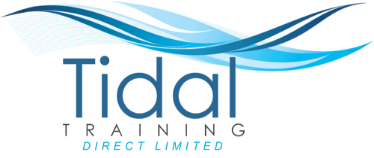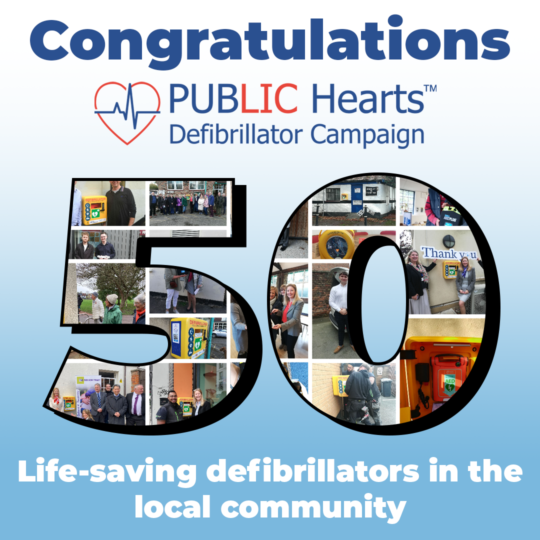The Health and Safety (First-Aid) Regulations 1981 require employers to provide adequate and appropriate equipment, facilities and personnel to ensure their employees receive immediate attention if they are injured or taken ill at work. These Regulations apply to all workplaces including those with less than five employees and to the self-employed.
What is ‘adequate and appropriate’ will depend on the circumstances in the workplace. This includes whether trained first-aiders are needed, what should be included in a first-aid box and if a first-aid room is required. Employers should carry out an assessment of first-aid needs to determine what to provide.
Employers are required to carry out an assessment of first-aid needs. This involves consideration of workplace hazards and risks, the size of the organisation and other relevant factors, to determine what first-aid equipment, facilities and personnel should be provided. Tidal Training Direct have a free workplace First Aid calculator to support businesses with this.
Emergency First Aid at Work (EFAW) training course content includes
Role and responsibilities of first aider: Role, responsibilities, infection control, consent, first aid equipment, incident reporting.
Incident and casualty assessment: Scene survey, primary survey, calling for help/information needed.
CPR and AED: Unresponsive casualty not breathing normally. Unconscious casualty breathing normally: Recovery position Management of a seizure.
Choking casualty: Recognition and treatment. Shock: Types, recognition and treatment. External bleeding: Types and treatment Minor injuries: Small cuts, grazes, bumps and bruises, small splinters, minor burns & scalds and nosebleeds. An optional inclusion of catastrophic bleeding. Practical assessments and a multiple-choice question paper.
First Aid at Work (FAW) training course content includes all of this content on Day 1 and more serious accidents, injuries and emergencies over the following 2 days.
Not if the practical assessments and multi choice paper are not done face to face in a classroom environment to support quality standards. Under Department for Education, Ofqual and Awarding Body requirements, first aid can not be done completely online. The practical assessments and multiple choice paper can only be completed face to face . It is not possible to learn how to perform CPR, how to use a defibrillator, treat a choking casualty, the recovery position and how to perform a primary survey by watching it online. They are practical skills and need to be learnt and practiced with the guidance of a trained and qualified professional trainer. It is possible to offer the theory elements through a blended approach, however it is always better to be taught face to face where possible.
To support workplaces during coronavirus (Covid-19) it is possible to deliver up to a third of course content online such as via interactive webinar. For an EFAW this is up to 2 hours of theory content.
To give first aid treatment to someone in the event of an accident, injury or accident until the Emergency Services arrive (if required) It is a workplace requirement for employers to ensure that staff have access to adequate first aid provision.
First Aid at Work training is a minimum of 18 guided learning hours, usually delivered over 3 days. Emergency First Aid at Work is 6 guided learning hours, usually delivered over 1 day. Deciding on which training course is appropriate is met through a workplace risk assessment.
Costs vary widely. For a Tidal Training Direct open course in Qualsafe Awards Level 3 Emergency First Aid at Work (RQF) it's priced per delegate at £99 including Ofqual regulated certification which is valid for 3 years. For group courses to businesses, the cost is £550 -£650 per training day, depending on individual businesses' training needs. It is so important to choose a trusted training provider with a solid reputation and all the required quality assurance to support businesses in meeting their HSE workplace Health and Safety requirements.
Level 3 is the level of qualification within the Regulatory Qualifications Framework as set out by Ofqual and the Department of Education. A Level 3 First Aid qualification can only be delivered through a training centre and its Awarding Body. First Aid at Work is delivered over a minimum of 18 guided learning hours, typically over 3 days. It supports higher risk business environments as outlined in a workplace risk assessment.
Basic first aid is a shortened version of emergency first aid and does not include all the content as specified by The Resuscitation Council and Ofqual. It is generally not suitable for workplaces and is commonly a Level 2 qualification.
To preserve life, to prevent the situation from becoming worse and to promote recovery.
To preserve life, to prevent illness the situation from becoming worse, to promote recovery and to protect the unconscious.
This stands for Airways, Breathing and Circulation. The most accurate acronym is DRABC Danger Response Airways Breathing Circulation. In the event of catastrophic bleeding, this can be prioritised before Airway.
By attending a recognised and accredited First Aid training course, either an open course or on a group basis. A qualification can only be gained through an accredited training provider and its Awarding Body, regulated by Ofqual.
First Aid at Work training is a minimum of 18 guided learning hours, usually delivered over 3 days. Emergency First Aid at Work is 6 guided learning hours, usually delivered over 1 day. Deciding on which training course is appropriate is met through a workplace risk assessment.
First Aid qualifications are valid for 3 years, with an annual refresher recommended to maintain skills and knowledge. For EFAW learners need to attend a Qualsafe Awards Level 3 Award in Emergency First at Work. For First at Work (FAW) it is possible to attend a 2 day re-qualification course, within a specified period of the existing certificate being valid.
To support workplaces during coronavirus (Covid-19) individuals holding a valid certificate in Level 3 Emergency First Aid at Work or First Aid at Work on or before 16th March 2020 has a qualification extension from the Health and Safety Executive to the 30th September 2020. This is subject to not being able to refresh your qualification.
One which is delivered face to face or via a blended learning approach by a teacher trained qualified professional and a trusted business with all the required quality assurance in place and accredited through Ofqual.
Yes. It is a nationally recognised qualification. Learners must meet the required standard assessed through practical work and a multi-choice paper.
Yes, very much so. Gone are the days when training is seen as a ‘tick-box’ exercise. While the qualification is important, the learning of first aid skills and knowledge can make a great difference to act promptly and confidently in a workplace accident, injury or emergency. First aid is a universal life skill that could save some-one elses.







